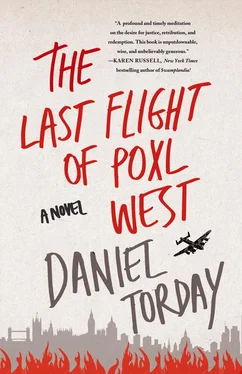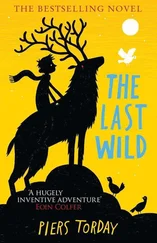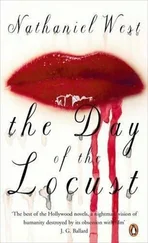I would’ve followed his broad shoulders into the ballet without embarrassment.
Though his teaching job held a certain prestige, Uncle Poxl was an aspiring writer when we started on our trips. It was all he’d wanted in his later years, to get down stories based on recollections of his youth, and all he did with his free time. But in more than a decade, three novels had been rejected by New York editors. No matter how proud he was, his shoulders slumped a bit farther forward with each turning away. Regardless, my parents felt it an inherent good that Uncle Poxl serve as my monthly Virgil through the vague cultural life of downtown Boston — no accrual of rejections in New York could undo cultural currency in our small city, and any time spent with Poxl would do me good, they said.
What I learned from my Uncle Poxl on those outings didn’t come as we listened to Daniel Barenboim play the Moonlight Sonata. After each event Uncle Poxl would drive us out to Newtonville, where over sundaes at Cabot’s he would read passages to me from his latest project, this one not a novel but a memoir. After his return from a trip to London for the funeral of a captain he’d served alongside in the RAF, he’d finally decided he would write a memoir of his life during that time. He’d felt more comfortable writing fiction, but if it was a memoir the world needed, he’d write it. It wasn’t much different from the novels he’d read to me from in the past. They were full of strange, awkward depictions of sex, scenes that, looking back, I now realize I was too young to be hearing. This new book felt overwrought at times, a feeling I wasn’t too young to pick up on. But with this new project, suddenly the scenes he’d written were vibrant, absent the hesitations and wanderings of his earlier works. The sex scenes, while still graphic, were somehow easier to hear. Even today I feel a pride that borders on embarrassment intuiting that those scenes were crafted to make my younger self accept them.
“This next section,” Poxl said one night after four long hours of Don Giovanni, “is the most gripping scene of all, when the reader sees what we were really up against. The story of when the ‘S-Sugar’ bomber went down in a lightning storm.”
His hands flew up near his curly auburn hair. Uncle Poxl had one of those pointy red Ashkenazi faces whose very shape carries confidence and import. The bridge of his nose was so thin it simply faded into his high red brow. Atop his head he wore a trademark porkpie hat, the brown felt of which was always brushed. The hat’s name wasn’t lost on him: “It’s the closest to anything tref I ever come,” he said. Out from the hat’s sides stuck shocks of his remaining translucent hair, which took light like a polished garnet. Lambent crimson ran to his cheeks through gossamer veins. But there was nothing varicose about my uncle Poxl’s face: He was hale and lissome, a man of indeterminate age but whose virility was discernible in the very color of his cheeks. He wore a black tweed Brooks Brothers suit with narrow lapels and a collar he’d popped against the Boston winter. He saw no need to smooth it down now that we were inside spooning pralines and cream.
“My squadron flew into a thundercloud over Lübeck,” he said. “That’s when the S-Sugar began to fly into the thundercloud, too. Crack, boom, blue lightning! You’ve never seen anything like it.” I asked him to read it to me instead of telling me about it — he’d written it down, after all, and I wanted to hear — and so he put his face to the loose pages before him and read. The world around us dropped away as I listened to my uncle Poxl read from his book. His hands spun dense nimbus clouds in the air between us as he narrated the bomber’s bravery. This was an entirely different kind of war story than the kind we read at Hebrew school — a story not of survival, but of action. It was as if he was crafting his great account before my very eyes, and I don’t know that I’ve been so close to history since. My uncle Poxl was born in a small city north of Prague but he had a diplomat’s accent — his cars had r ’s, his parks, too, and unlike the living survivors we met or whose books we read in Hebrew school, his tongue wasn’t thick and muddy with Slavic consonants. As he described in the middle chapters of his book — I’d heard each of them as we talked over fudge and whipped cream — he had been sent to London by way of a year in Rotterdam. By the time the Luftwaffe began bombing the East End, he was enlisted as a squaddie. Poxl was a Jew who had flown for the Royal Air Force during the war and lived to write about it. Though he carried in his broad shoulders the complicated burden of his own actions in those days, he had wrested his fate from the inevitable bearing down of history upon his fellow Ashkenazi Jews. And not only that but he’d lived to write about it, too.
And write about it he did. Each time he finished a new chapter he would take me somewhere new and recount to me his finest similes, the clearest arisen memory, the complicated feeling that arose as he remembered things he’d obviously spent most of his adulthood trying to forget — all for the sake of literature. For the sake of those who came after him. We talked about the fact that this is why men wrote: to leave behind their stories for those who would come years later.
“The pages are flowing from me faster than ever before,” Poxl said one afternoon. We’d just gone to stare at the Renoirs at the Museum of Fine Arts. He had an innate knack for spotting celebrity, and that afternoon, like two little kids spying on the neighbor’s wife, we watched Katharine Hepburn as she studied the great painter’s brushstrokes. But now we were again at Cabot’s, and he had promised to read to me from the middle of the book, pages he’d only recently completed. I asked him what the new scenes were about.
“Well, until I started writing, I’d entirely forgotten about the day I enlisted. The officer called me into his office,” Poxl said. “‘Weisberg,’ the officer said, ‘we need to talk. If you’re shot down over Jerry soil, a man with a Jew name like yours will be torn to pieces.’ So that’s how they came to call me Poxl West — the kind of name men remember.” He looked at me, and I looked back. I implored him just to read to me, and as he always did, he shuffled the pages in front of him and settled back into his tale.
I sat and stared at my uncle as if he were the only hero we’d seen that day. Who needed some prune-faced old actress I’d never even seen in a movie when my uncle Poxl was there to recite his stories? Even when he stopped mid-sentence and stared at the shimmering window behind me, an odd blankness coming over his face, as if he might stop, I felt I could read the story he was telling in the ageless lines of his sharp red face.
By the time I was a sophomore in high school he had finished the book. As I’ve said, this one quickly found a publisher. A small but prestigious press bought it, offering a respectable advance. A book tour was arranged, he completed his copyedits, the first edition was printed, and before he even had a chance to give that first reading in Boston — not three short months since that moment when he’d come to my parents’ house and interrupted the Super Bowl — the book began to get real notice. Before we saw him again we read the review on page twenty-three of The New York Times Book Review. The reviewer was laudatory and honest: “ Skylock is not a perfect book. There are some odd formalities in its language at times, and its second half is stronger than its first. But the story Poxl West has to tell is truly unique, a history we need, and there’s something undeniable about the quality of its details, the precision of its observation. Having finished it, I don’t think I’ve been so moved by a book in recent memory.” Without even talking with him I could imagine my Uncle Poxl’s response: “There are some criticisms in there, Eli, sure. Even The Great Gatsby isn’t a perfect book. But my book! Reviewed in The New York Times Book Review. The New York Times !”
Читать дальше












